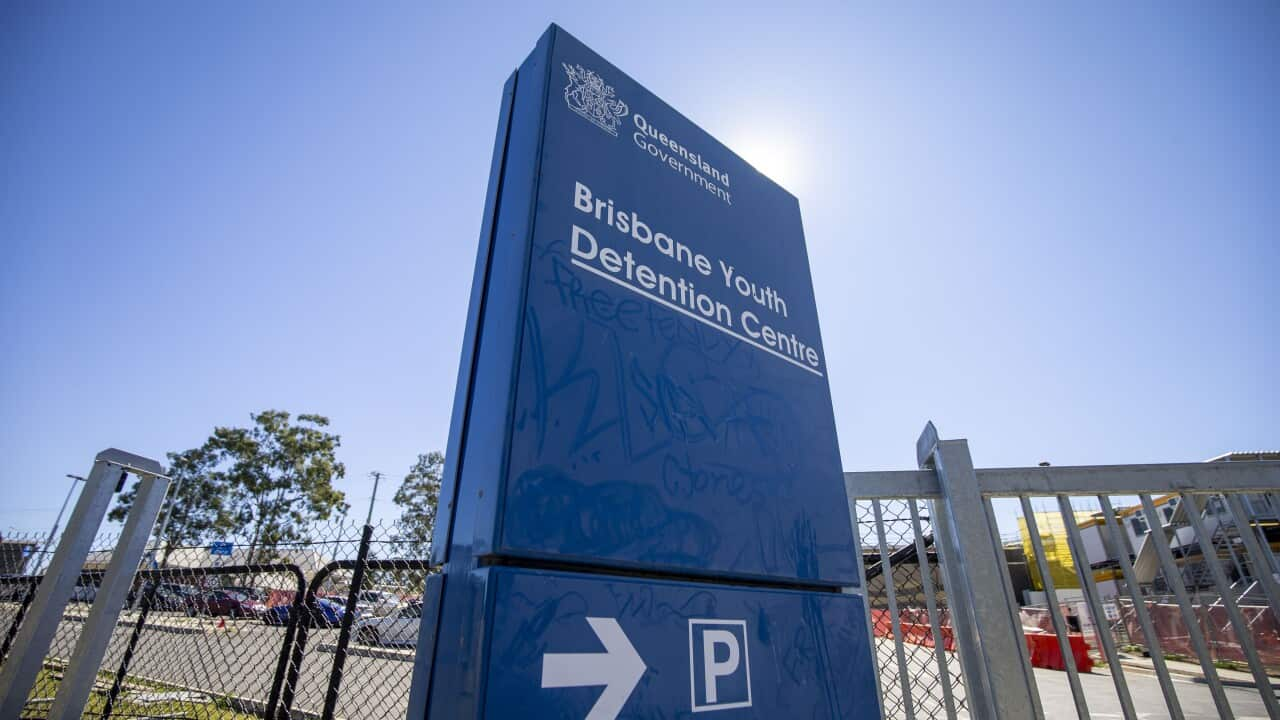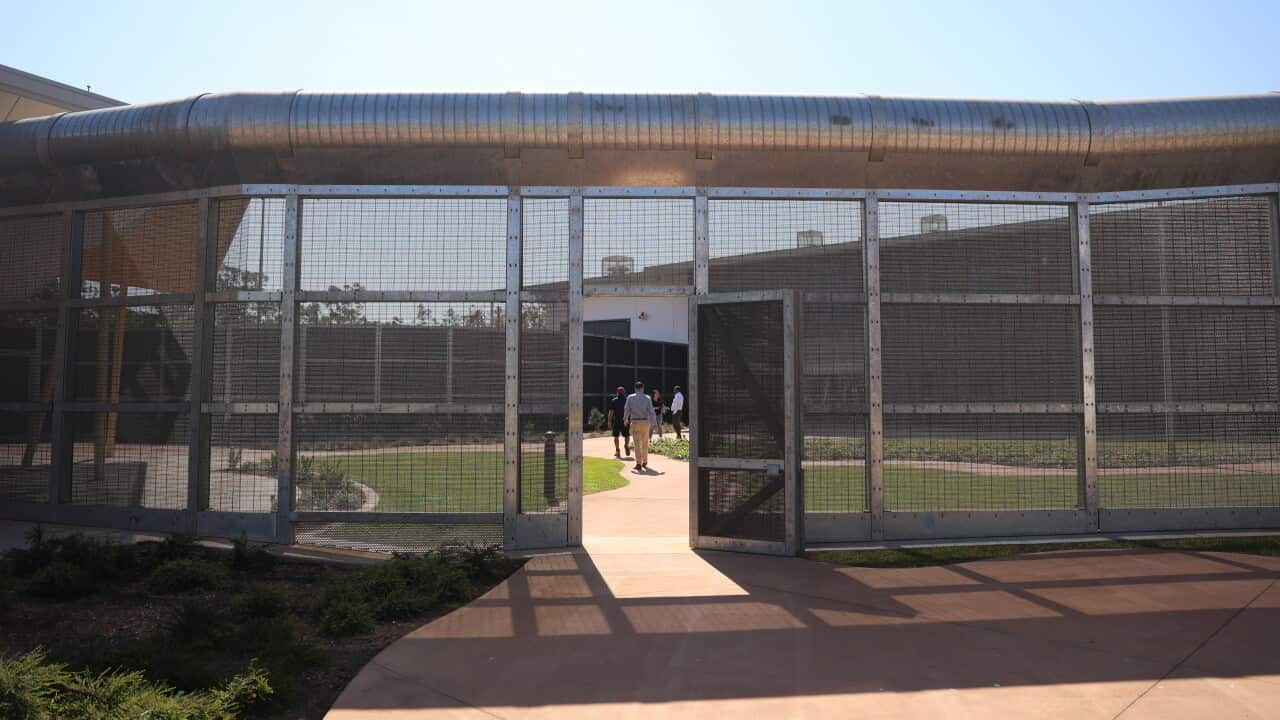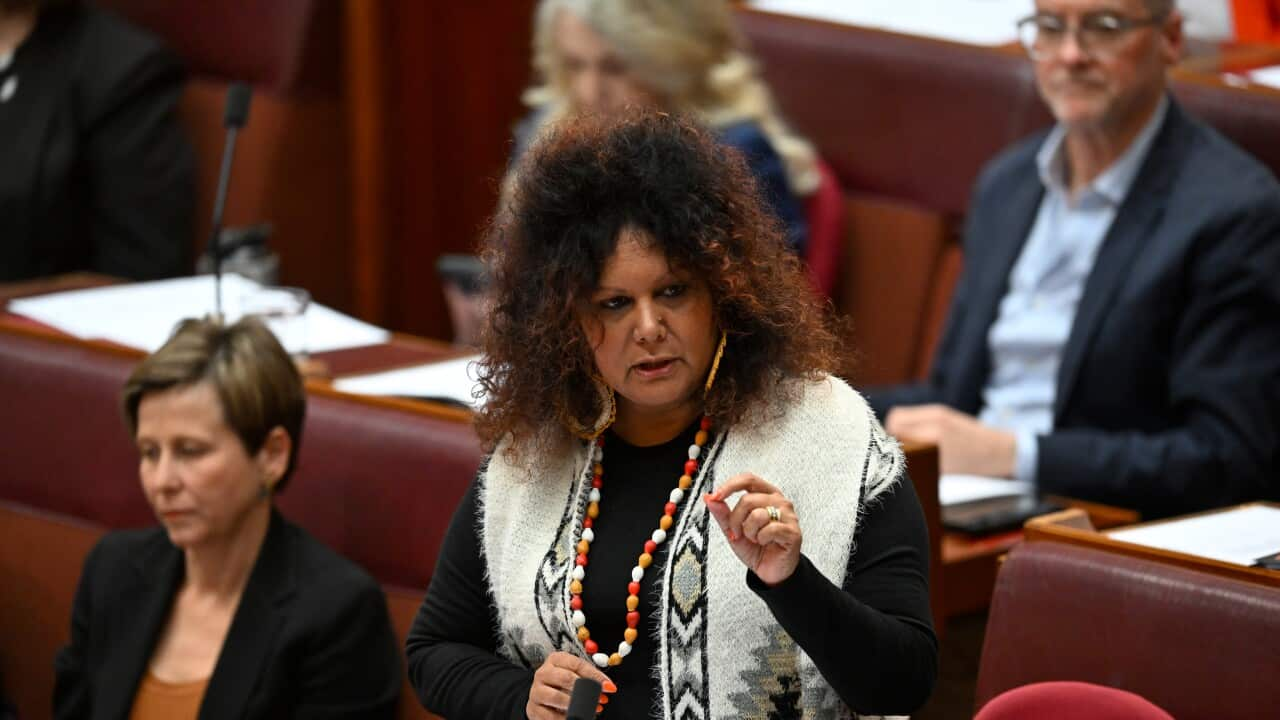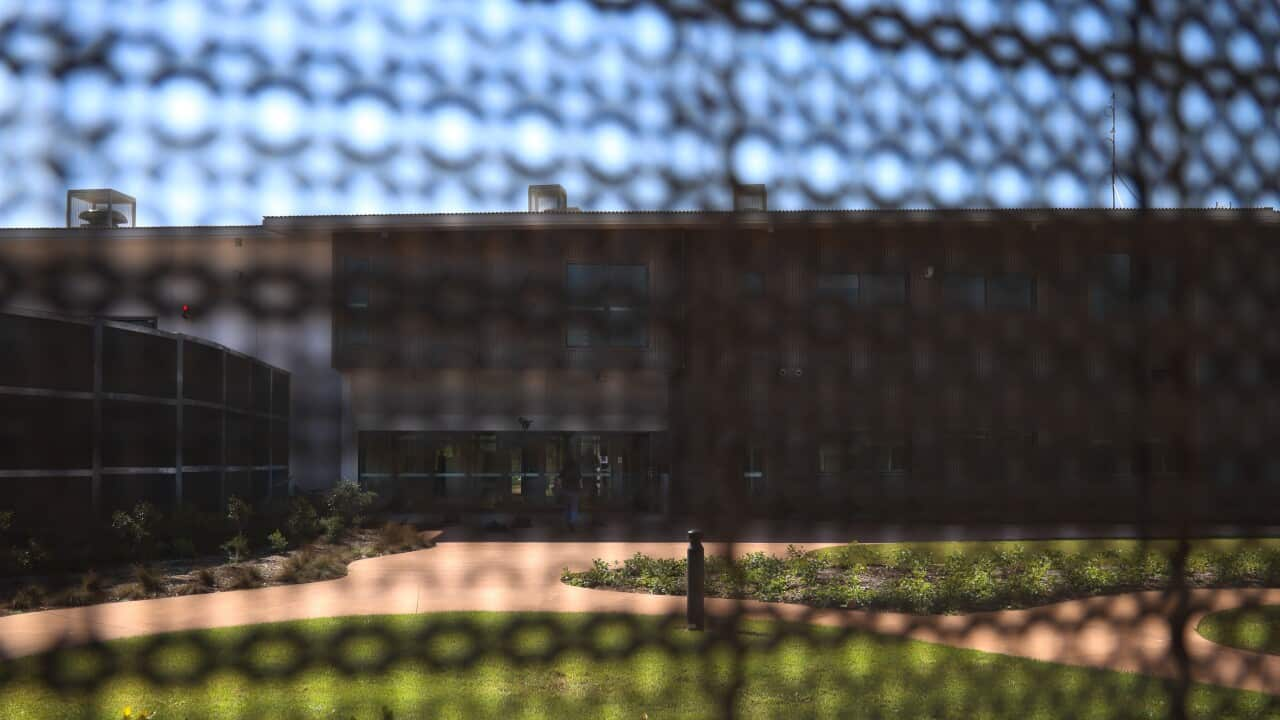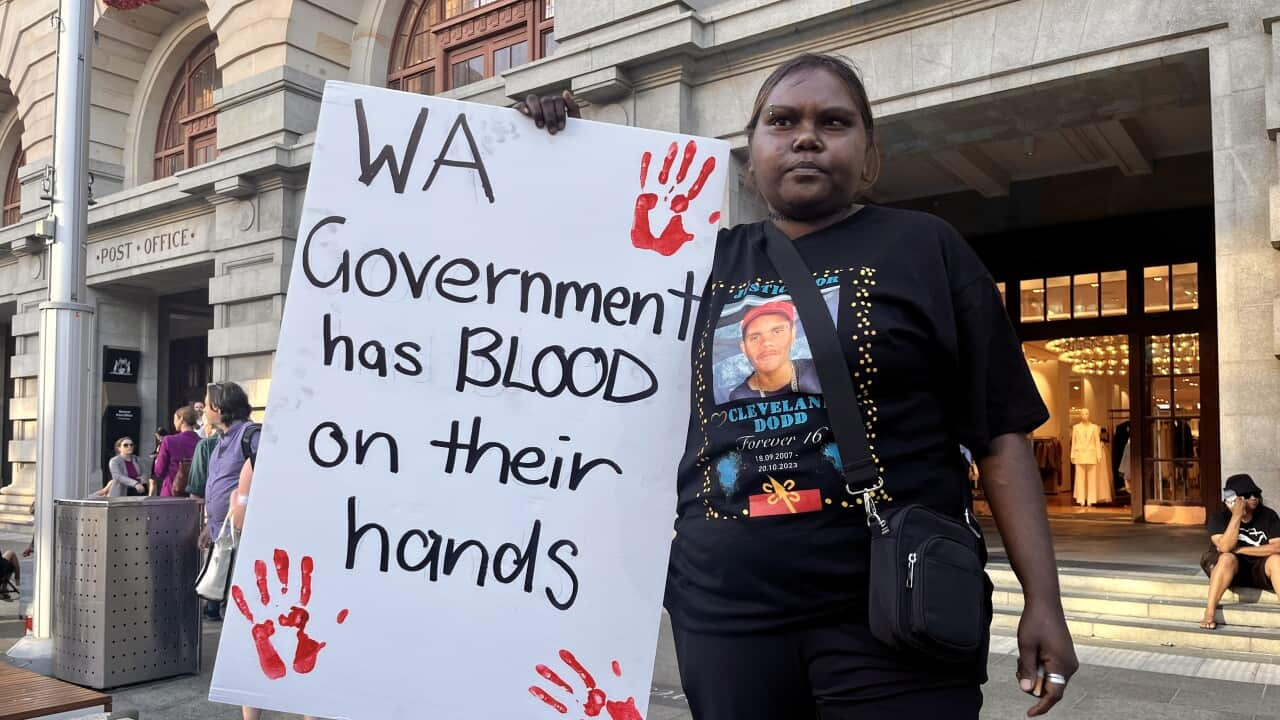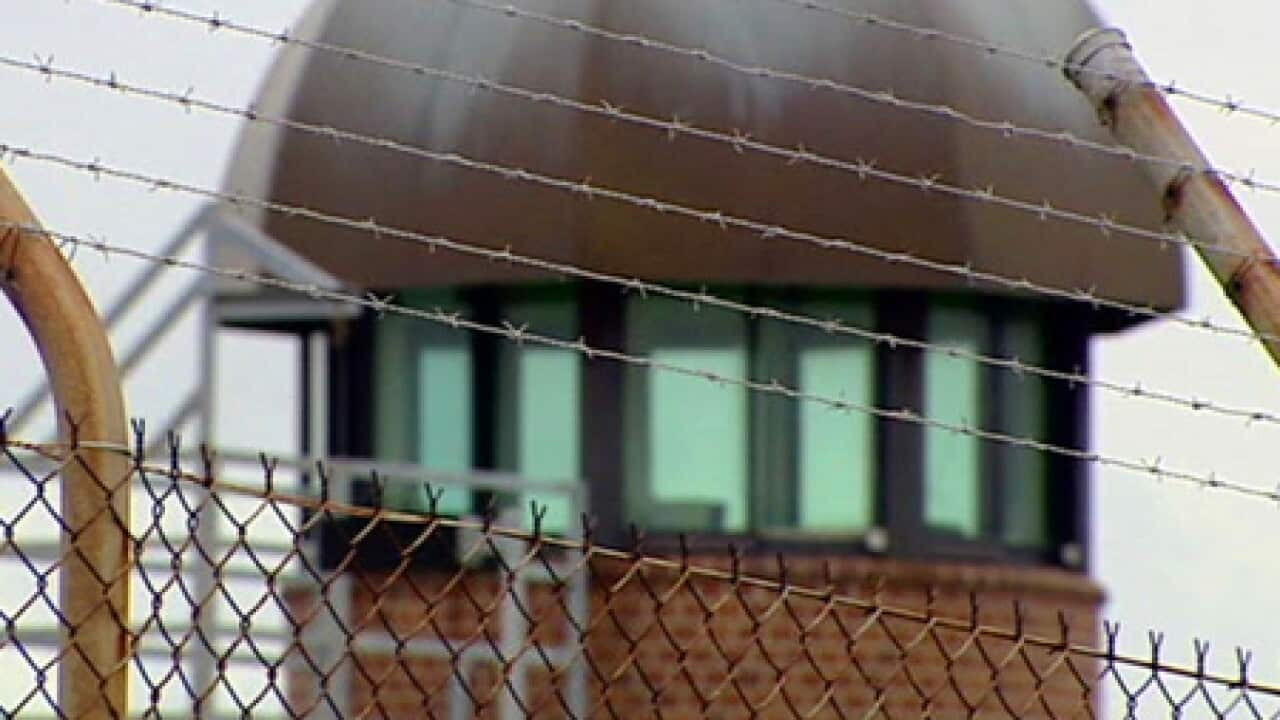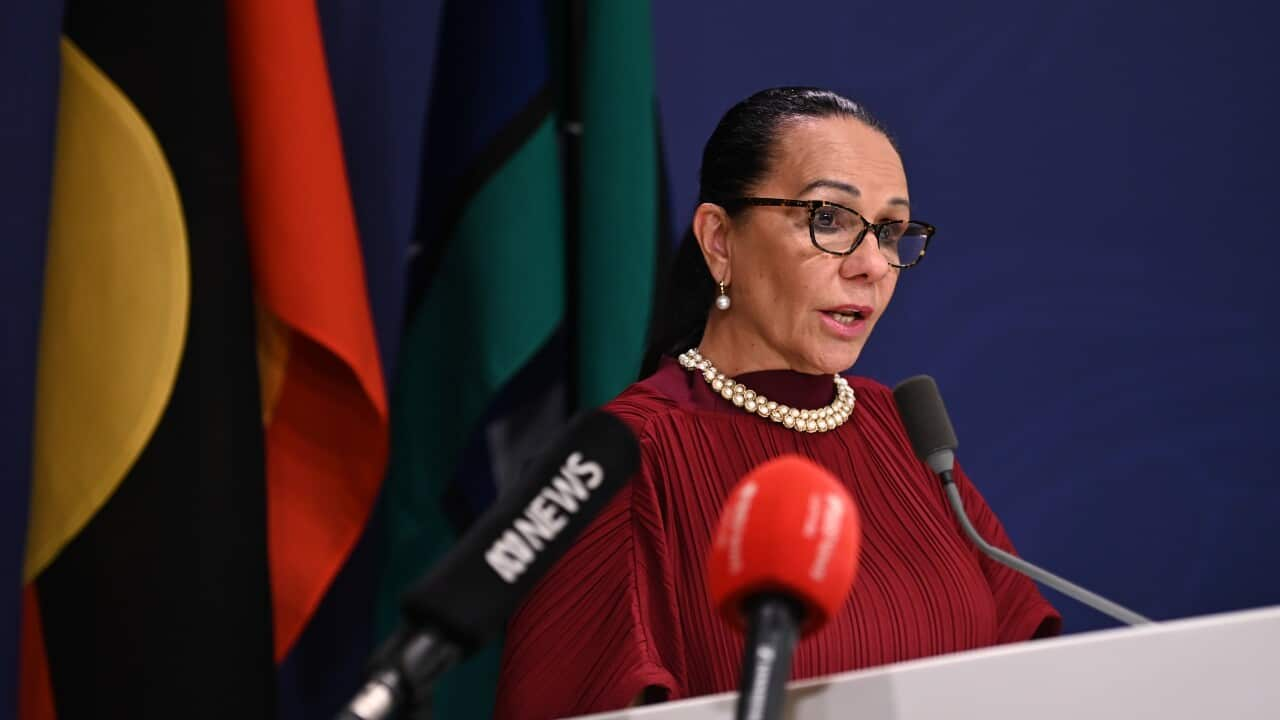Prisoners howled in the back of court cells, screaming for help, as unprecedented arrests after law changes brought court proceedings to a halt in the Northern Territory this week.
In the first 24 hours since new breaches of bail laws came into effect in the NT, police arrested 31 people, causing Darwin Local Court to come to a standstill on Tuesday.
As one of its first orders of business after being elected in October, the Country Liberal Party lowered the age of criminal responsibility from 12 to 10 years old, contrary to international guidelines and despite an outcry from First Nations, health, legal and human rights experts.
Nyikina woman Natalie Hunter, a spokesperson for the newly-formed group Justice Not Jails, told NITV that she had never seen anything like the impacts the CLP's harsh approach to justice are having, particularly on Aboriginal children.
"I'm gutted," she said.
"I've been in this space for 20 odd years and I don't see any solution to it, and all we can see is more destruction of families, children, young people where they're going to keep locking them up, they get younger and younger."
NT Legal Aid duty lawyer Laurence Waugh told Judge Greg McDonald when court began at 9.30am on Tuesday, that only three of the 31 prisoners were in court cells and lawyers were unable to seek instructions from clients.
“I mean, the idea of a court dealing with 31 people in custody in a single day is already pretty extraordinary and it's all the more challenging,” he said.
“The lawyers can't begin speaking to their clients until court's already under way.”
Mr Waugh told reporters outside court that as police arrest more people the problems were going to compound.
By 10am when prisoners had arrived, journalists sat in an adjourned court while lawyers attempted to see clients.
The inmates could be heard howling and banging on metal in the cells.
Prisoner numbers skyrocket
The bail changes coincide with rising inmate numbers, with 2615 people, 89 per cent who are Aboriginal, in jail on January 9 – more than one per cent of the NT's population.
While numbers inside jails climb, more than 260 people have crammed for weeks inside police watch house cells.
Chief Minister Lia Finocchiaro on Monday announced Palmerston Police watch house would become a temporary jail solely for prisoners and converted cells at the NT police training academy into holding cells.
The academy has a maximum capacity of just 16 detainees.
Ms Finocchiaro claimed the backlog had been addressed by extending court hours and judges had been added to the bench.
“What I do know is added pressure on our corrections system means they've had to pull back on delivering some of that important rehabilitation,” she said.
“We have had to cease some programs of rehabilitation in prison because of the demand of prison services is so high … the only other alternative is to leave criminals out on the street.”
Domestic and family violence expert Dr Chay Brown pointed out that advocates had warned the Territory system would suffer if the CLP introduced its harsh laws and had called instead for investment in programs that could address behaviour change and ultimately keep women safe.
“It’s government who have amended the bail laws and have publicly celebrated the increase in prison numbers, only to now turn around and bemoan the fact the prisons are bursting at the seams," she said.
"They were warned about all of this. They promised the community they would have it solved within 100 days and now they're standing up there saying things are more complex.
“That's what happens when you have really simplistic punitive responses to what is actually really complex social problems.”
The reality of 'tough on crime'
Independent federal senator Lidia Thorpe posted on Instagram that both the NT and Queensland governments' tough-on-crime approaches were veiled racism designed to demonise Blak kids.
The available show that on any given day in October, more than 90 per cent of children in detention in the NT were Aboriginal.
According to a Department of Corrections spokesperson, no adult programs had been suspended but increased prisoner numbers had created a cycle of lockdowns, or unlocks, which had reduced access to programs.
“Overcrowding is causing difficulties with access to prisoners and limiting service delivery across the board,” the spokesperson said.
But when the new government moved community-based services and youth justice into the department some domestic and family violence programs were impacted.
A man was remanded to custody on Monday after he was approved for community-based sentencing because the judge was told no family violence programs were running.
Dr Brown said referrals to men's behaviour-change and family violence programs had long outstripped funding and more had to be done to prevent women being killed.
Police Commissioner Michael Murphy said housing prisoners in watch houses was increasing pressures on police.
He said the practicality of having both corrections and police in the same watch house was that they operated under disparate models.
"We're dealing with people who might be affected by drugs and alcohol sometimes or other times angry," he said.
"And working in a busy environment with actual business (to do) in there is quite difficult."
Justice groups and the NT Ombudsman, the watchdog for ensuring human right are upheld in detention, have condemned the use of watch houses.
The former Don Dale Youth Detention Centre has been repurposed back to an adult jail, the Berrimah Correctional Centre, which became operational in December.
As at January 7, there were 106 low-risk male prisoners held in the facility.
The government is planning for all youth remanded and sentenced in the NT to be accommodated at Holtze Youth Detention Centre in Darwin from late January, with only a small number of youth held at an intake facility at Alice Springs.
And once the children have been moved 1500km from Alice Springs to Darwin the government plans to make a women's facility operational, with a capacity of 48.
Plans to build new facilities
Corrections Minister Gerard Maley said in a statement to NITV that as part of their , new work camps in Darwin and Katherine will be developed, along with new youth justice boot camp and bail facilities in Katherine and Tennant Creek.
"Alice Springs Paperbark facility [formerly a rehab centre] will be repurposed for up to 16-bed youth boot camp and bail facility ...," he said.
"Once Corrections prisoners are moved out of police watch houses, we will implement the 'Sentenced to a Skill' program for youth offenders and expand the Prison Industries and 'Sentenced to a Job' programs, alongside compulsory community service and alcohol and drug rehabilitation."
A spokesperson for the Department of Corrections said the Corrections Infrastructure Masterplan is supported by ongoing recruitment efforts, with more than 700 correctional officers in the NT in January, the highest number the department has ever had.
Ms Hunter said investing in measures to support First Nations-led solutions to homelessness, substance abuse and general disengagement would go a long way to improving community safety instead of continuing to waste taxpayer money on police and prisons when there is no evidence they work to prevent or reduce crime.
"It seems that these laws are made on the run, there is certainly no structure behind any of the reforms that they've made to support any individual," she said.
"Poverty, mental health, disability, abuse, sexual abuse, physical and mental - that's why these children are on the streets ...
"Aboriginal people aren't involved in trying to resolve the issues, what's happening with kids, it's all being done and controlled by services and by the government.
"Sadly, I've never seen anything like it."

